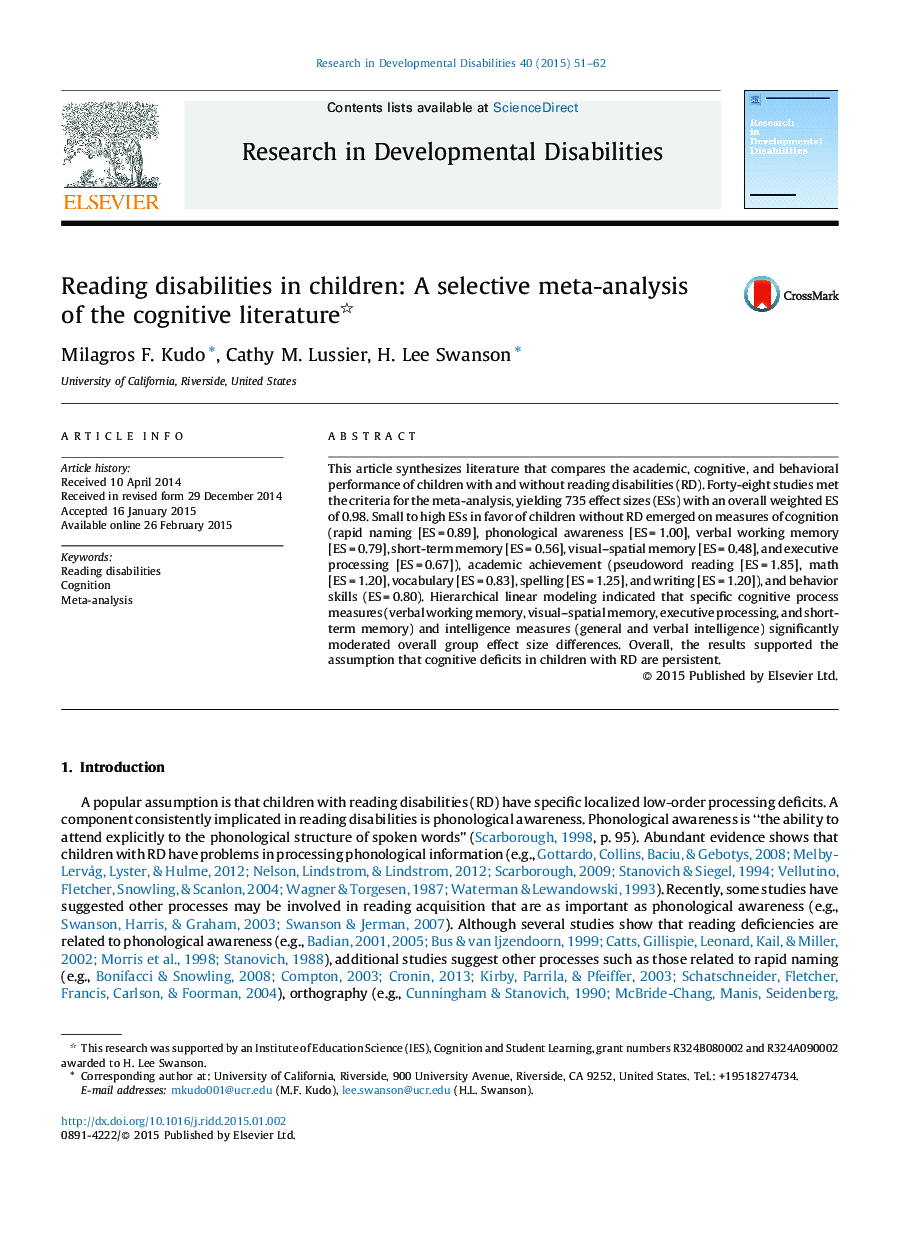| Article ID | Journal | Published Year | Pages | File Type |
|---|---|---|---|---|
| 371200 | Research in Developmental Disabilities | 2015 | 12 Pages |
•A meta-analysis compared children with and without reading disabilities (RD).•Forty-eight studies, yielding 735 effect sizes (ESs), were included in the study.•Effect sizes favoring non-RD children emerged on cognitive and academic measures.•Specific cognitive and intelligence measures moderated group ES differences.•Results support the notion that cognitive deficits in RD children are persistent.
This article synthesizes literature that compares the academic, cognitive, and behavioral performance of children with and without reading disabilities (RD). Forty-eight studies met the criteria for the meta-analysis, yielding 735 effect sizes (ESs) with an overall weighted ES of 0.98. Small to high ESs in favor of children without RD emerged on measures of cognition (rapid naming [ES = 0.89], phonological awareness [ES = 1.00], verbal working memory [ES = 0.79], short-term memory [ES = 0.56], visual–spatial memory [ES = 0.48], and executive processing [ES = 0.67]), academic achievement (pseudoword reading [ES = 1.85], math [ES = 1.20], vocabulary [ES = 0.83], spelling [ES = 1.25], and writing [ES = 1.20]), and behavior skills (ES = 0.80). Hierarchical linear modeling indicated that specific cognitive process measures (verbal working memory, visual–spatial memory, executive processing, and short-term memory) and intelligence measures (general and verbal intelligence) significantly moderated overall group effect size differences. Overall, the results supported the assumption that cognitive deficits in children with RD are persistent.
